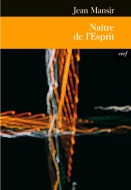
Dieu... Quel Dieu ?
de Jean Mansir
Collection Épiphanie
176 pages - mai 2009
18,70€
La révélation judéo-chrétienne ne nous a-t-elle pas clairement informés sur Dieu ? L'Église, avec l'autorité de sa doctrine et de ses dogmes, ne nous a-t-elle pas suffisamment éclairés sur les attributs et les desseins divins ? Est-il alors légitime que le disciple du Christ puisse encore avouer sa totale ignorance de Celui qui manifeste sa présence en lui et qui s'adresse à lui ? Est-il légitime qu'il avoue ne le nommer « Dieu » et « Père » que faute de mieux et par convention ? Un beau matin, l'auteur est réveillé par l'apparition subite de son ange gardien. Ce dernier, inquiet de la tournure que prennent les interrogations métaphysiques de celui sur qui il est chargé par Dieu de veiller, entreprend en son esprit un questionnement en règle, qui va durer sept jours, sur la représentation de Dieu que son protégé a, n'a pas, ou devrait avoir, selon l'un et l'autre. C'est dans un dialogue, très vivant sur ce qu'on peut dire et ne pas dire de Dieu que nous fait entrer Jean Mansir. En s'appuyant sur trois grands mystiques, Maître Eckhart, Catherine de Sienne et Jean de la Croix, et dans la ligne de cette hymne de l'office liturgique « Ô toi, l'au-delà de tout » attribuée à Grégoire de Nazianze, il nous mène avec adresse sur les chemins de la mystique et de la contemplation, à la portée de tous. L'expérience mystique, en effet, apprivoisée, sauvée de la peur et des phantasmes de l'extraordinaire, est, pour le croyant, un chemin nécessaire, chemin de lumière et de bonheur, et, pour l'incroyant en quête de vérité, un chemin de compagnonnage et d'initiation.
--
Hasn’t the Judeo-Christian revelation given us clear enough information about God? Hasn’t the Church, with the authority of its doctrine and dogmas, sufficiently enlightened us about divine attributions and plans? So can the disciple of Christ still confess his total ignorance of the God, who manifests his presence in Christ and speaks to him? Is it acceptable that he should admit calling him ‘God’ and ‘Father’ for the want of a better word, out of conformism? One fine day, the author is awakened by the sudden apparition of his guardian angel. The latter, worried by the metaphysical interrogations of this man God has asked him to watch over, faces a series of questions, methodically, lasting seven days, about his protégé’s representation of God, what it should be and shouldn’t be, according to the man or the angel. Jean Mansir invites us to enter into this lively dialogue about what can and cannot be said about God. Referring to three great mystics, Master Eckhart, Catherine of Siena and John of the Cross, and in the spirit of the hymn we sing at Mass, ‘Oh ye who are above and beyond all things’, attributed to Gregory of Nazianzus, he skilfully guides us along the paths of the mystic and contemplation, making them accessible to all. The mystic experience made approachable, removed from fear and the phantasms of the extraordinary, is, for the believer, a necessary way of light and happiness; and for the non-believer in search of truth, a path of fraternity and initiation.
--
Hasn’t the Judeo-Christian revelation given us clear enough information about God? Hasn’t the Church, with the authority of its doctrine and dogmas, sufficiently enlightened us about divine attributions and plans? So can the disciple of Christ still confess his total ignorance of the God, who manifests his presence in Christ and speaks to him? Is it acceptable that he should admit calling him ‘God’ and ‘Father’ for the want of a better word, out of conformism? One fine day, the author is awakened by the sudden apparition of his guardian angel. The latter, worried by the metaphysical interrogations of this man God has asked him to watch over, faces a series of questions, methodically, lasting seven days, about his protégé’s representation of God, what it should be and shouldn’t be, according to the man or the angel. Jean Mansir invites us to enter into this lively dialogue about what can and cannot be said about God. Referring to three great mystics, Master Eckhart, Catherine of Siena and John of the Cross, and in the spirit of the hymn we sing at Mass, ‘Oh ye who are above and beyond all things’, attributed to Gregory of Nazianzus, he skilfully guides us along the paths of the mystic and contemplation, making them accessible to all. The mystic experience made approachable, removed from fear and the phantasms of the extraordinary, is, for the believer, a necessary way of light and happiness; and for the non-believer in search of truth, a path of fraternity and initiation.
- Dimensions : 135x195x15
- ISBN : 9782204088442
- Poids : 230 grammes
DU MÊME AUTEUR
> VOIR TOUS LES LIVRES DE l'AUTEUR
DANS LA CATÉGORIE
Vie Spirituelle n° 776 (La)
96 pages - juin 2008
Vie Spirituelle n° 766 (La)
64 pages - sept. 2006
Vie Spirituelle n° 803 (La)
96 pages - déc. 2012
Vie Spirituelle n° 786 (La)
96 pages - févr. 2010
Vie Spirituelle n° 753 (La)
384 pages - juil. 2004










